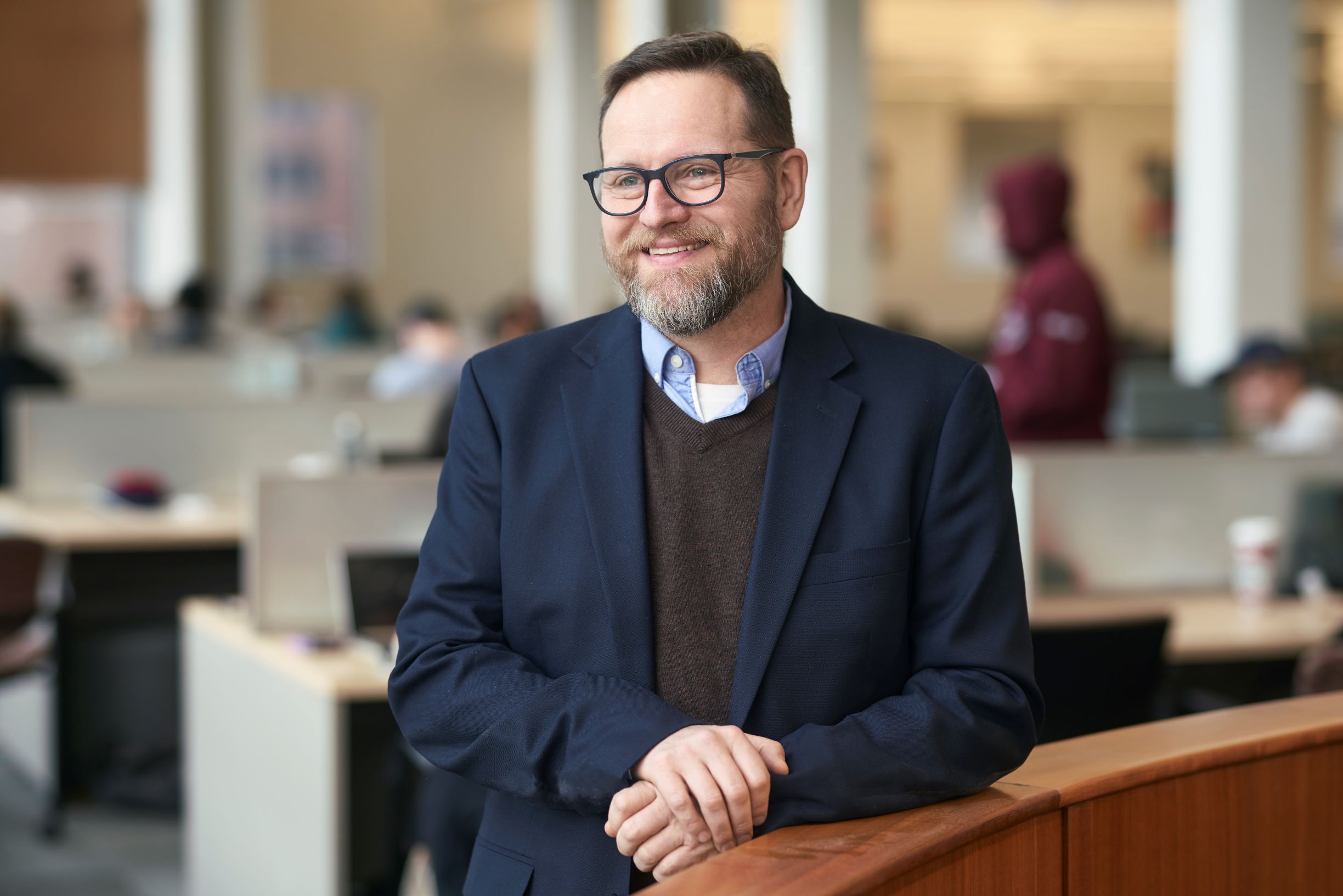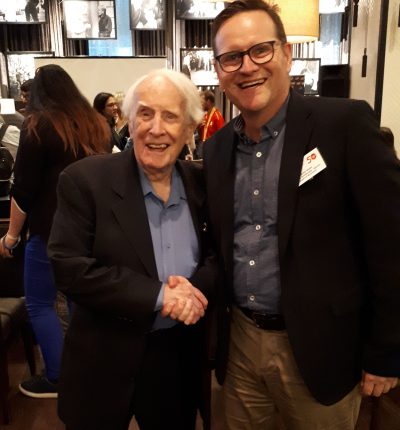We are pleased to announce Dr. Andrew Webb as our new Co-Director at the Centre for Research on Inclusion at Work (CRIW). Starting July 1, 2020, Dr. Webb will join Co-Director, Dr. Merriddee Bujaki, at the helm of CRIW. Dr. Webb is replacing Dr. Luciara Nardon, who will be on sabbatical leave.

Dr. Andrew Webb, faculty member of Carleton University’s Sprott School of Business and Co-Director at the Centre for Research on Inclusion at Work (CRIW)
CRIW Co-Director, Dr. Bujaki, welcomes Dr. Webb to CRIW’s governance team.
“CRIW is – and I personally am – really looking forward to working with Andrew Webb as the Centre’s Co-Director. Andrew brings a wealth of experience and energy to the role and will ensure that the Centre continues to focus on its mandate to foster inclusion – of all kinds – at work. Whether as sounding board, provocateur, or research colleague, Andrew is uniquely positioned to contribute to CRIW’s development and growth.”
Joining the Sprott team in 2017, Dr. Webb’s research in International Management contributes to our understanding of cross-sector social partnerships, namely in the field of sport for development. In addition, his forward-thinking focus on project-based and service-learning is bringing an exciting new perspective to management education. With an intense passion for higher learning and teaching—and as retired Infantry Officer and UN Peacekeeper, one could argue that Dr. Webb is contributing to better understand the potential for sport in bringing about cooperation and inclusion, not only in business, but in society as well.
To give our community at CRIW, Sprott and Carleton University an opportunity to get to know Dr. Webb better, we asked him questions about himself and his passion for inclusion.
Why did you choose a career in academia?
A few years after leaving the Forces, I was fortunate enough to be offered the position of Executive Director of Laval University’s experiential learning program. One of the biggest and most successful projects we organized was the 2008 National Winter Games for Special Olympics. This amazing project involved students managing and directing 650 athletes with intellectual disabilities who would be competing for five days, on seven different sites. It was, bar-non, the best teaching experience of my life. But as a firm believer in lifelong learning, I understood that perhaps, by combining experimental learning, and the magic of sport, one can teach management while improving societal perception of inclusion and tolerance.
I was therefore drawn to exploring the idea of using sport as a tool for development and inclusion, and did a PhD that focused on the management of sport for development programs. Today, my research focuses more on the behind-the-scene cross-sector partnerships constructed by major sport for development agencies such as Special Olympics, the Maple Leaf Sports & Entertainment (MLSE) LaunchPad, and FC Barcelona’s Barça Foundation. Indeed, it is fascinating to consider the relationships between corporations and non-profit organizations as they come together to try and tackle the world’s grand challenges—especially when the fundamental objectives of the partners involved are completely different.
What excites you about getting involved with CRIW?
As a firm believer in Bruno Latour’s claim that science is a social exercise, I am excited about expanding my research network and connecting with a broad variety of researchers. The opportunity to listen to a variety of points of view will undoubtedly be beneficial for generating new ideas. And perhaps, concurrently, my own perspectives might spark some novel ideas for others.
Why would you encourage faculty and students to get involved in workplace inclusion research?
When you think about some of the grand challenges we currently face such as the migrant crisis, the growing disparity between the rich and the poor, sexism, systemic racism, homophobia, etc.…, it would be easy to give up and think, “my gosh, these challenges are so complex, there is nothing we can do about it.” Au contraire, research about inclusion is a great way to help tackle such grand challenges. New ideas and insights will plausibly lead to new ways of thinking about such issues, and create new opportunities for making true contributions to the greater good. For instance, 50 years ago, people with intellectual disabilities were marginalized, locked up, or even sterilized by misguided eugenic pseudo-scientists. Now look how far we’ve come. So, sure, grand challenges are daunting, but it is possible to make things better.
What career-enabling advice would you give to students interested in workplace inclusion?
I can guarantee that workplace inclusion is a field that will not, any time soon, run out of concepts that will need to be teased apart and better understood. Moreover, this is one field where your research will plausibly have a practical impact on people’s lives. Having a positive impact on society while contributing to the greater good is a fantastic path to a long and interesting career. So, who wants to co-create tomorrow, today?
What has been the most eye-opening research you have been involved with?

Dr. Andrew Webb with Dr. Frank Hayden, Co-Founder of Special Olympics Canada
That’s a good question. And there have been many. But I was really thrilled to have met Dr. Frank Hayden, the Co-Founder of Special Olympics Canada. His research was instrumental in demonstrating that people with intellectual disabilities were definitely able to master sport literacy and that the fact that many of them were struggling with sport had nothing to do with their disability, but with the simple fact that they were not doing sports. From that simple paradigm shift, everything changed. So, considering that there are over 5 million registered Special Olympics athletes today, and society’s views regarding individuals with intellectual disabilities has moved so far in such a short period of time, was a clear demonstration of the power that a simple idea can have.
In conclusion, the COVID-19 crisis has made social inequalities more visible. What changes would you like to see to improve equity for vulnerable workers?
I am hoping that the current crisis will be leveraged as an opportunity to implement policy and ideas that will create a more just and equitable society, that will reduce the distance between the rich and the poor and will re-enforce the necessary social safety net. This is critical as this crisis is but one of the many we may have to face in the near future. In short, and to paraphrase Bertrand Russell, the only thing that will redeem us is cooperation, so I hope we will use this time as an opportunity to build a more equitable and sustainable society.